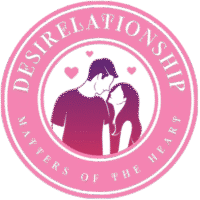
You probably did not know that black flags in relationships existed. However, sometimes when I would discuss red flags in a relationship with my friends I would understand that some of these issues were fixable. You cannot just leave a person because of a red flag. People need to be reasoned with and given a chance to work through some of these red flags and ultimately then we get to decide whether or not to keep the relationship.
Unlike red flags, which signal potential issues that can sometimes be worked through, black flags are absolute deal-breakers. These are non-negotiable, extremely toxic, and often dangerous behaviors that indicate the relationship should end immediately.
1. Abuse
Abuses are of three types: physical, emotional and sexual.
- Physical Abuse: Any form of hitting, slapping, choking, pushing, or any violent act is completely unacceptable.
- Emotional Abuse: Constant insults, humiliation, gaslighting, manipulation, or threats can destroy self-esteem.
- Sexual Abuse: Pressuring, forcing, or coercing you into sexual activities against your will is abuse. Even within a relationship, consent is always required. Marital rape or date rape are one such form of abuse that may even encompass emotional and physical abuse along with sexual.
This is definitely a black flag in a relationship as it is not fixable. Abuse will only escalate over time. No matter how many apologies follow, it’s a clear sign to leave immediately.
2. Extreme Possessiveness
- If they dictate what you wear, who you talk to, where you go, and what you do it showcases extreme possessiveness.
- If they are often found isolating you from friends, family, or any outside support that also shows that they see you as theirs and theirs alone.
- If they constantly check your phone and demand answers for your texts or contacts, they demand your password, or they keep tracking your location these can also be considered as black flags. They might even give an excuse that they do all these to protect you from others, however, if it seems too intrusive and against your best interests it is definitely not good for you.
Controlling someone’s life and behavior is not love—it’s manipulation. A healthy partner respects your independence and lets you continue living in a way that brings comfort to you.
3. Lack of Empathy
- They only care about their own needs and disregard your feelings.
- They never take responsibility and they always blame others for their own failures.
- They use guilt trips, silent treatment, or emotional withdrawal to control you.
This typical narcissistic behaviour which is ingrained in most people. It has no room for improvement and it will only worsen
4. Repeated Infidelity
- They repeatedly lie and cheat on you without remorse.
- They always text/flirt with others or use dating apps while in a relationship. These things must be ideally discussed as a deal-breaker in a relationship. However, some people just never change and regardless of the consequences they still cheat on their partner.
- When caught cheating they would blame you for their behavior. They would make you feel “crazy” for blaming them and calling out their infidelity..
Can someone who cheats often be trusted to not cheat or hurt you again? No, trust is the foundation of any relationship. Repeated cheating means repeated betrayal and lack of respect for the sanctity of a committed exclusive relationship that they promised you.
5. Uncontrollable Extreme Temper
While having a temper is not uncommon in human beings, some people have extreme temper that can cause harm to themselves or their closed ones.
- Their anger explodes and they may even harm their loved ones at home.
- They may have habits like breaking objects, punching walls, or threatening to hurt people when angry.
- They use intimidation or aggression to scare you into submission.They abuse your loved ones and they may even wish you or your loved ones die.
Anger management is not easy when the temper is off the charts. If they have a violent temper, that anger will eventually be directed at you and may cause you both mental and physical harm.
6. Drug or Alcohol Addiction (With No Effort to Change)
It is just very risky to get involved with someone who is addicted to drugs or alcohol. If you go into a relationship with such addicts, you will lose track of what your life goals were. Your time will be spent being a human rehab for them.
- They usually get drunk or high, leading to reckless behavior.
- They become aggressive, manipulative or abusive under the influence.
- They lie about their substance use or refuse to seek help.
Drug and alcohol addiction destroys relationships, and if they’re unwilling to get help, it’s not your job to fix them.
7. Criminal Activity & Dangerous Behavior
This is a no-brainer. Why would anyone want to be associated with a criminal? However, it is possible that their criminal activity or dangerous behavior is not voluntarily revealed to you.
- Do not get involved with someone who is into illegal activities (stealing, fraud, gang involvement, etc.).
- Watch out for those who engage in reckless behavior (drunk driving, fights, carrying weapons).
- Beware of those who lie about their past criminal history.
If they show no remorse for their actions, your safety could be at risk.
8. Threatening Suicide or Self-Harm to Control You
Getting involved with someone who is prone to suicide or uses suicide as an empty threat to control you or not let you break up with them, is very dangerous. If they show early signs of such toxic behavior you need to run.
- If he often says things like, “If you leave me, I’ll kill myself”, you need to break up as soon as possible. Check the tone and frequency of such sentences.
- They would emotional blackmail to keep you trapped in the relationship.
- They would make you feel guilty for setting boundaries.
It’s not your responsibility to save someone at the cost of your own well-being. If they are struggling, professional help is necessary.
9. Chronic Liar
If he/she is an occasional liar, there is still room for improvement, however, if they are known to lie constantly. There have been instances where their lies repeat even if they were caught and they promised not to repeat, it’s definitely a black flag.
- They lie about big or small things without remorse.
- They change stories frequently, making it hard to trust them.
- They are always caught in lies but never admit their fault.
Trust is everything in a relationship. A habitual liar is not a safe partner.
Why You Should Walk Away from Black Flags
Unlike red flags, which may be discussed or worked through, black flags are non-negotiable. Staying in a relationship with these signs can lead to serious emotional, physical, or financial harm.
If you notice any of these black flags, don’t make excuses—RUN. You deserve safety, respect, and love.
